Podcast: Play in new window | Download | Embed
Subscribe Apple Podcasts | Spotify | Android | iHeartRadio | Blubrry | Email | TuneIn | Deezer | RSS
The U.S. SEC has opened an investigation into Archegos Capital’s Bill Hwang and trades that led to $20 billion in losses for his firm and perhaps billions more for various banks. What kind of perverted system allows such chaos? Bill Black on theAnalysis.news with Paul Jay.
Paul Jay
Hi, I’m Paul Jay. Welcome to theAnalysis.news, don’t forget the donate button if you haven’t donated yet or you want to donate again if you’re watching on YouTube. Don’t forget the subscribe button and I’ll be back in a second.
The U.S. Securities and Exchange Commission has opened an investigation into Archegos Capital’s Bill Hwang and the margin call trades that led to a $20 billion liquidation of his family office, according to a report from Bloomberg.
The investigation is “routine” following such a high-profile market event, and the probe may not lead to allegations of wrongdoing. Archegos Capital was hit with several margin calls last week that it was unable to meet, prompting several banks that had prime brokerage relationships with the family to liquidate its stock positions in names like ViacomCBS, Baid, and Tencent Music Entertainment, among others. The trades led to extreme volatility in a handful of stocks on Friday, with ViacomCBS and Discovery notching their biggest daily declines on record.
Banks like Goldman Sachs and Wells Fargo managed to escape potential losses by quickly liquidating their exposure to Archegos, but others, like Nomura and Credit Suisse, are facing billions in potential losses from the trades, and of course, there’s all kinds of ordinary people’s money that is tied up in all of this as well. Now, joining us to make sense of more Wall Street nonsense is Bill Black. Bill’s an American lawyer, academic, author and former bank regulator with expertize in white collar crime, public finance, regulation and other topics in law and economics. He is the author of the book The Best Way to Rob a Bank is To Own One, and he’s associate professor of economics and law at the University of Missouri, Kansas City.
Thanks very much for joining us again, Bill.
Bill Black
Thank you.
Paul Jay
So what is this all about? The billions of dollars of losses. Break this down for people that don’t understand some of the terminology. What happened here?
Bill Black
OK, so this one is a demonstration of how completely screwed up modern finance has become, but not necessarily anything criminal in this transaction, which is good news, bad news, that you can destroy 20 billion dollars in wealth without committing any crime is perhaps a disturbing as opposed to a non-disturbing fact, but remember that the problems were the government, right?
The government made banks make bad loans to poor people with dark skins and that’s why we had the great financial crisis supposedly, right? That that series of racial tropes and myths. Here has none of those. This is supposedly in the absolute best circumstances where nothing catastrophic could possibly go wrong. So the theory that you would be taught in modern finance schools is that the key was to have skin in the game, and that’s a weird phrase, and it just means you have something personally to lose.
A lot personally to lose, and Bill Hwong was investing his own family money almost exclusively. So he should have been at his absolute most careful. He should have had all the right incentives, and the banks, there were only about seven of them, they were all massive, the allegedly most sophisticated financial players in the world. So they should have never allowed themselves to be exposed to these kinds of losses.
Naturally, these two things where they’re absolutely ideal circumstances produced record losses and such. Why? Because it’s all nonsense. It’s all taking in, in this case, it’s usually fixed and it’s fraud, and Hwong has done that in the past, right?
Paul Jay
Yeah. He was actually convicted for insider trading at some point.
Bill Black
Pled do it. Yeah, and such, and there were other sanctions and such, and the whole name, the name comes from the New Testament Greek. It’s used four times in the New Testament in every case to refer to Jesus as a leader. Right. It means a leader, paramount leader type of thing, innovator, with Christian freighted, and Hwong is a huge self-professed Christian when he isn’t defrauding people.
Paul Jay
Well, so is the Mafia.
Bill Black
Why not type of thing, so this is all insane. These are allegedly the moral people on top of the super sophisticated.
Paul Jay
Well, what exactly did he do? What did he do? What does it mean calling in the margin and why do all these banks lose money out of it?
Bill Black
So what he did is just the old fashioned thing, you know, instead of all the nonsense you’re taught. Right. If you went for two years or a four year program to get a Ph.D. in finance, all it is is leverage. Leverage just means a friggin unbelievable load of debt, and it works like a teeter totter. Right. We’re talking about how much is my return on equity. So if I make my equity really small by borrowing a ton of money, it’s like on a teeter totter going way the heck out from the fulcrum, and then you could lift your fat friend who weighs seven times more than you do, because of the leverage. So your return on equity, your own stuff goes up immensely, and even though most of the money invested is not really yours, it’s borrowed money. You don’t say, oh my god, you seven banks, the seven sister banks that funded them, you made possible the great bulk of my successful investment. I won’t pay you back the debt which you contracted to have me pay at seven percent.
I mean, you are the one who was really taking the risk that this project would blow up, so I’ll pay you fifty percent. That happens never. Just like nobody washes the used car before they return it to the dealer. So you only pay the credit folks, the lenders, even though they’re providing the great bulk of the money and taking the great bulk of the risk, the whatever percent, eight percent of what you borrowed, and if you win big 40, 50 percent and then you leverage it 20, 30, 40 to one, if I were a rich man, then you become a billionaire.
Now, if you lose, you can’t possibly pay the money back so you can win big and you can lose big, but it’s asymmetrical, if you win big, you keep all the money. You just pay the clowns, the lenders, the eight percent rate at which they lent the money, but if you lose, you don’t have remotely the wealth to do it. So after your loss, all the other losses are borne by the lenders in these circumstances.
Right, which is why lenders should never lend on these kinds of terms. So how did they do it? They made it first opaque, and that’s always the recipe, right, let’s hide what we’re doing so we don’t have to disclose it. You mentioned the Securities and Exchange Commission. The whole theory of the SEC is a disclosure regime. The SEC doesn’t try to tell investors this is a good deal. That’s a bad deal. It doesn’t rate them ABCD it just says here’s what the nature of the deal is. You go decide whether to do it or not, but if I keep most of the terms secret, then people don’t know how much leverage I’m undertaking and then I can con them into these kinds of things. Now, again, the finance theory says you can’t them because they’re sophisticated. They have skin in the game and they would never loan in these terms. Well, except they did to the tune of 20 or 30 billion.
Right. So they will land on these terms. Why? Because Hwong, what does he care? He agrees to a significant fee. So, again, usually you might get eight percent. Now you get 10 percent. Well, that extra 200 basis points, that’s huge for your bonus. Right.
Paul Jay
For the individuals in the bank who are greenlighting it.
Bill Black
That’s right. The executives at the banks have a conflict of interest. Their compensation system makes them rich if they say yes to this deal, and that doesn’t make them rich if they say no to these deals. Hmm. I’ll do the deal, and so they do the deal, and again, it’s allegedly the most sophisticated folks and everybody hides it using a financial derivative that’s deliberately opaque and not disclosed, and then they are shocked, shocked that you can lose as well as win.
Paul Jay
All right. So why did owning stock in ViacomCBC, what did he do? Why did that blow up in his face. Did he go short on them?
Bill Black
No, it’s the opposite. So he is known for.. The thing that probably you were taught even by your parents when you were 18? They probably used it, told you about this word called diversify, diversify your risk. Don’t put all your eggs in one basket.
Paul Jay
The only diversify I ever heard was don’t play just hockey. Try some other sport. That was as far as my diversification went. Anyway go on.
Bill Black
Hockey is not a sport. It’s a religion where you grew up. I play to. Michiganders are near Canadians in this regard. So, don’t put all your eggs in one basket is common sense, and there’s a phrase like that in essentially every language everywhere in the world that does investment, it says if you diversify, then one bad deal won’t blow you up, right? So the very first thing we really get into students in finance is diversify, diversify, diversify.
It’s not a free lunch, but it’s the closest thing there is to a free lunch in finance. Hwong deliberately as a strategy and didn’t diversify, and second, he deliberately bought stocks that were being shorted. So he’s not shorting them. Why do people short stocks, because they think they’re overvalued. Why in particular do they think that are overvalued a lot, because we think they’re playing games with the accounting, engaged in securities fraud, not disclosing your problems, right.
This is that GameStop thing, right? That the people thought the GameStop stock was dramatically overvalued, so shorts started going after them. Bill Hwong sees an opportunity when there are shorts and I won’t go through it, but more technically, you can have a strategy where if the stock price is rising, then the shorts, it’s called a short squeeze, the shorts have to then buy stock to be under the terms of the deal, and if the price of the stock is going up while they bet it was going to go down, then they’re in a world of hurt, and as they rush to buy what happens to the price of stock, it goes up even more, and so if you’re on the other side of the trade, which is what Bill Hwong characteristically did, and there’s a short squeeze, you make a ton of money. Well, are the shorts been immensely successful of late?
Well, no, because we’ve had this un-frigging believable stock market rise that has in general continued for about eight years, right, massive U.S. stock price rise.
So if you’re betting against the shorts, and you happened to be betting in a period in which the shorts are usually getting killed. That was a winning strategy, but every once in a while, the shorts are right, right in such a dramatic fashion that Viacom stock price falls, and now you have the opposite problem because Bill Hwong has borrowed tons of money on the bet that the stock price is going to go up so he can’t repay these loans.
So he’s got to try to borrow more money, but when you’ve already borrowed way too much money and lost 20 billion, somehow people sometimes get reluctant to lend you more money and instead they make a margin call.
And the margin call says, wait a minute, you’re supposed to maintain no more than, say, eight to one ratio of debt to equity and the equity has been falling. So you’re no longer meeting that ratio. So you got to put up billions of additional dollars, but you just lost 20 billion. So you can’t put up billions of dollars, which means you’re going to default, which means there’s going to be a sudden fall in stock prices because everybody’s going to be dumping the same stock to try to get out of the position.
Now, as you did in the introduction, if you’re Wells Fargo and God forbid, for once, Deutsche Bank and Goldman Sachs and you sell early enough, you largely escape the pain, but of course, that just increases the pain for the big banks that sell later and here that’s what happened, and they lost collectively many billions of dollars. We don’t know yet how much, but public announcements have already suggested at least five billion for basically some French and Japanese major banks.
Paul Jay
Now, I guess for most people, if a bunch of billionaires and big banks are losing money, too bad for them, but that isn’t just who gets hurt by these sorts of things, is it?
Bill Black
No, although this is less bad than many things in which more directly the people on the other losing side of the trade are the general public, but it still means workers, pension funds, cities’ pension funds, those types of things.
Paul Jay
Who in all likelihood owns some Viacom, CBS and some of the other stocks that tanked.
Bill Black
Yes, but they also potentially had positions invested for them in these big banks. And the sheer value of those big banks is also falling.
Paul Jay
It’s insanity.
Bill Black
But it isn’t insanity.
Paul Jay
Well, not for the people collecting the fees, right?
Bill Black
And again, it’s they win regardless of whether the bank wins or loses.
Paul Jay
In fact, they probably financed some of the people that were going short at the same time, they’re financing people going long.
Bill Black
Other branches of their bank could have that’s true.
Paul Jay
You’re right, the rational part is, as you say, you own the bank, you get to rob it, the fees make it, but in terms of society’s interest, it’s completely wrong.
Bill Black
From our standpoint, it’s insane. It’s why as financialization grows and grows and grows, the economy becomes slower and slower at developing productivity growth.
Paul Jay
Because less money is going, because so much money’s going into this parasitical gambling.
Bill Black
Unproductive and indeed destructive uses of capital, plus we take all kinds of people who are very bright, and what do we need in our system, in particular in a place like the United States, people who have really good financial and quantitative skills, who ought to be, you know, helping to make vaccines and such, and instead, they’re on Wall Street overwhelmingly gaming the system in ways that make them rich and the rest of us worse off.
Paul Jay
In a way, unless I’m not getting this, it’s a bit like the predatory lending of 07 08 in the sense they’re giving mortgages to people, that if the price of housing goes down, they will never be able to maintain the payments on their mortgage and this is that just way, way more exaggerated.
Bill Black
It’s very much alike.
Paul Jay
Shouldn’t it be illegal for banks to do that kind of financing with such risk to the overall economy?
Bill Black
Not that, but the compensation system should be illegal right. Taking risks, productive risks is something you need in finance, right? There’s no such thing as risk free stuff in finance, but the compensation system is, as you say, it was even worse in the great financial crisis because the optimal strategy there was deliberately to make bad loans. Right, in a form we call looting in economics and criminology. Here they make money whether they make good loans or bad loans. So they are more indifferent, but indifference to bad loans is a disastrous system, as you see here, and the statement in the industry is that finance is run for the benefit of the employees, but we don’t mean the union guys and gals. We mean the people making literally millions of dollars a year. They get an enormous percentage of the profits, whereas the losses go to the shareholders.
Paul Jay
Now, what is in the interest of the banks, the board, I know these finance institutions, the largest investors in the financial institutions themselves, are other financial institutions usually. Why is it in their interest to have a fee structure like this? I mean at the board level, not at the executive level.
Bill Black
Well, first, board members are also paid this kind of perverse compensation nowadays. That was a major change that began roughly 20 years ago when I was a corporate secretary and briefing board members and things like that in a fairly large bank. You know, you got 800 bucks for a session, and six times a year or something like that, it was an honored position, you might do it for dishonorable reasons, but you weren’t going to make yourself rich.
Nowadays, you make a ton of money and the people they put on the board, remember, are chosen by the CEO, not by the shareholders. Yes, the shareholders vote, but it’s pro forma. They don’t have a real alternative.
Paul Jay
Why would a company, for example, BlackRock or Vanguard or State Street, because they’re index funds and included in their index are banks, and you read BlackRock’s literature, they go on and on about how they make sure there’s good corporate governance of the companies that they put money in. Why do they allow such a fee structure?
Bill Black
They make money the same way at BlackRock. Never focus on the firm. Firms are not people. Firms cannot act. They don’t have intent. Right. They cannot protect themselves. Officers, which is to say the senior officers that actually control the place are what you want to focus on, and finance is the quintessential place of, hey, you get rich, I get rich, we get rich together. We don’t go around rocking the boat and saying, you know, our system has completely screwed up and we’re really hurting the world and that you have to be nuts to, be buying shares in our company.
Paul Jay
All right, thanks, Bill. We’re going to keep looking around after we publish this story. We’re doing another one with Bill about something he calls control fraud, which kind of goes to the heart of all of this. Thanks, Bill.
Bill Black
Thank you.
Paul Jay
And thank you for joining me on theAnalysis.news. Don’t forget the donate button, the subscribe button and see you again soon.

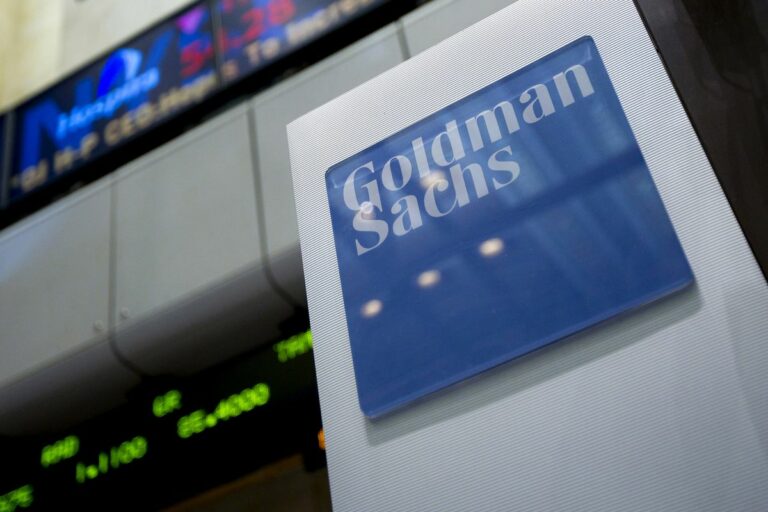
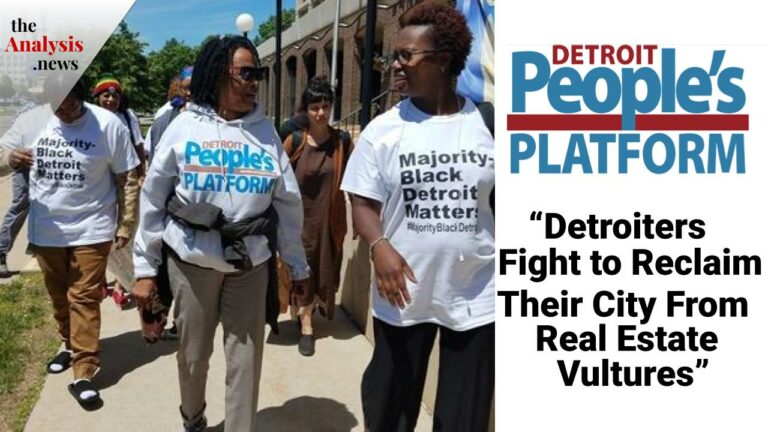
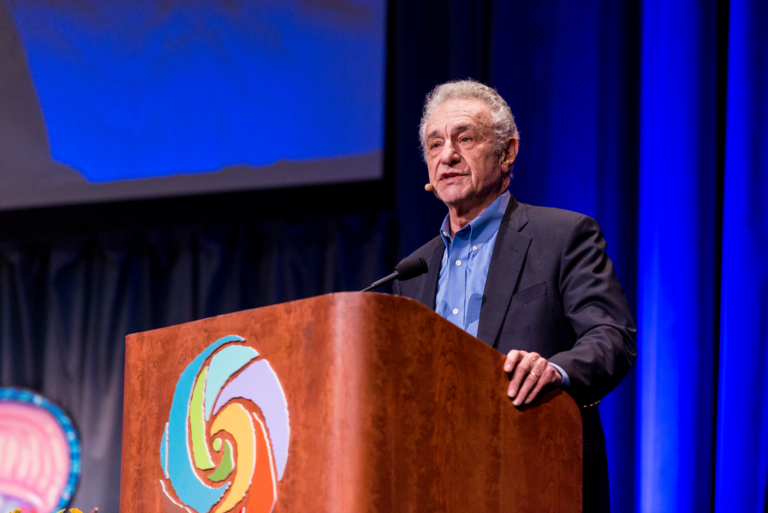

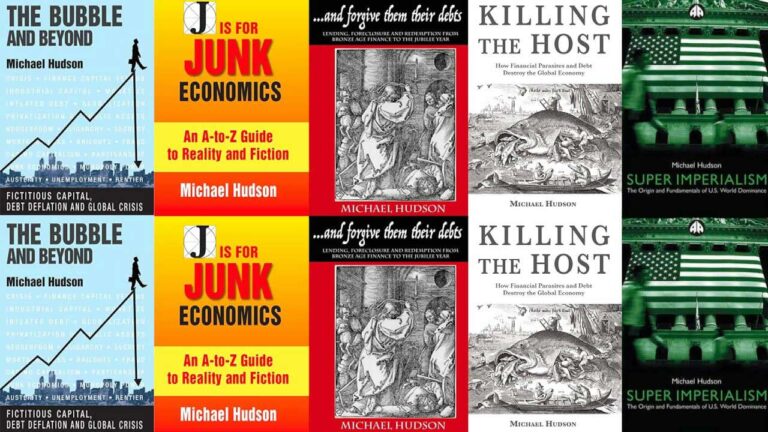
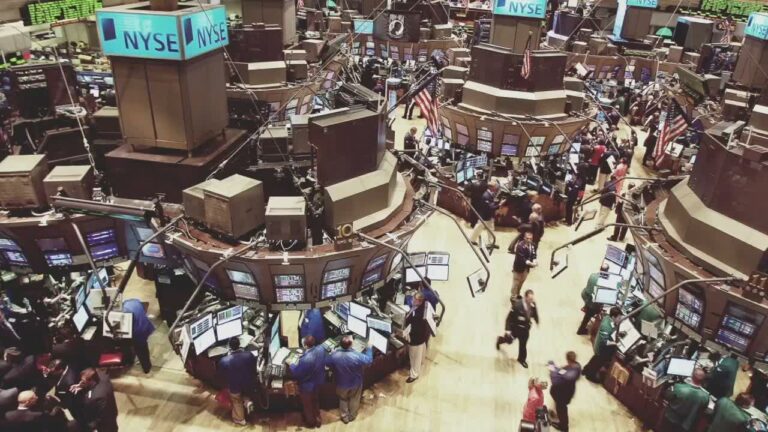
Bill Black is a legend. Well known investor Jim Chanos even uses his book to teach his fraud course at Yale.